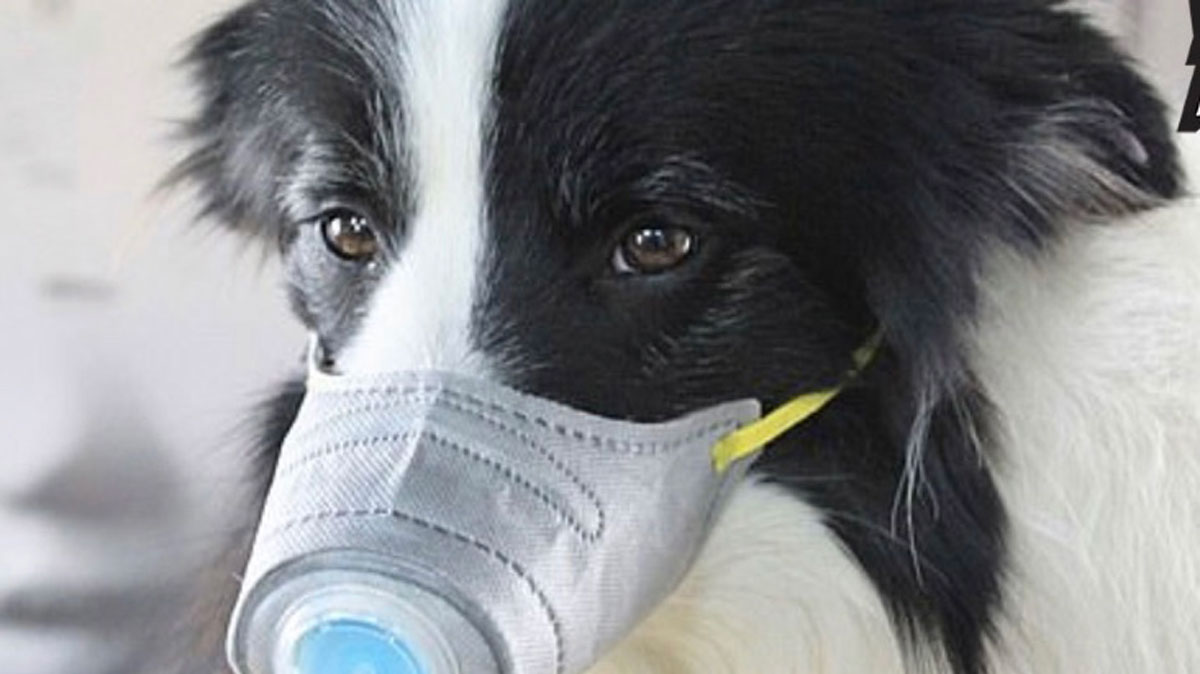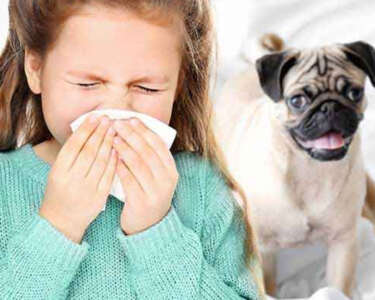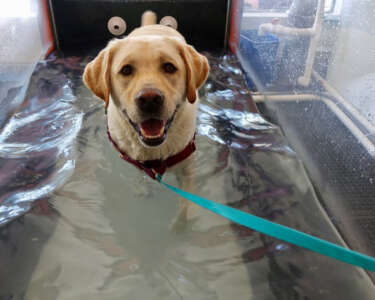In the face of a viral pandemic that originated from an animal believed to be a bat, it is our duty as responsible pet owners to be informed with the latest facts. At the time of writing this article, here is the latest that every pet owner should know.
- The new betacoronavirus known as SARS-CoV-2, the causative agent of the human acute respiratory illness known as COVID-19, is not known as a pet coronavirus. Dogs and cats have had their own family of coronavirus, for many years, that cannot be transmitted to humans. These cause, for the most part, gastrointestinal signs. Most of these diseases are not life threatening (with the exception of Feline Infectious Peritonitis). There are vaccines available for some of them as well.
- There is no scientific evidence at the present time suggesting that the new SARS-CoV-2 can infect or cause disease in domestic animals, including dogs and cats. A 17 yr old Pomeranian, and more recently a German Shepherd, both owned by people with the COVID-19 illness, were found to produce weak positive test results for the virus. Neither dog showed symptoms of the disease. The Pomeranian tested negative by the end of the quarantine period. She later passed away due to ongoing health issues of old age.
- Currently there is no evidence that the CoV-2 can be transmitted from companion animals to humans. In fact, thousands of cats and dogs have been tested throughout the world for this novel virus, and so far all of them have tested negative.
- It is unlikely to get the COVID-19 illness by touching the coat of a dog or cat contaminated with respiratory droplets from an infected person. An animal’s coat is porous and fibrous, and is unlikely to act as a contaminated surface.
- If you tested positive for CoV-2 out of an abundance of caution and until more information is known, avoid petting, hugging and kissing your pet. Do not share drinking cups, bowls, eating utensils or towels. Have another member of the family take care of the pet.
- If on the other hand, you depend on a service dog for assistance, wear a facemask and always wash your hands before and after contact with your service dog. If you are positive for the virus and your pet requires medical needs while you are on quarantine, call your veterinarian first to discuss if immediate medical care is required. Do not go to your veterinarian’s office.
- There is a test available for CoV-2 for dogs and cast, however, based on the current information that pets do not transmit or get sick with the COVID-19 illness, it is questionable if the test is needed at all in companion animals.
Veterinarians and public health officials are working together to share information on patients positive for COViD-19 and their contact with animals. This is one example where doctors share their knowledge regardless of the species of animal they treat. Science will advance, and soon we will leave this crisis in the past. Meanwhile stay safe, wash your hands, practice social distancing and do not forget to take care of your pets.














 Deering Estate
Deering Estate
 Massage Envy South Miami
Massage Envy South Miami
 Calla Blow Dry
Calla Blow Dry
 My Derma Clinic
My Derma Clinic
 Sushi Maki
Sushi Maki
 Sports Grill
Sports Grill
 The Healthy Kitchen
The Healthy Kitchen
 Golden Rule Seafood
Golden Rule Seafood
 Malanga Cuban Café
Malanga Cuban Café

 Kathleen Ballard
Kathleen Ballard
 Panter, Panter & Sampedro
Panter, Panter & Sampedro
 Vintage Liquors
Vintage Liquors
 The Dog from Ipanema
The Dog from Ipanema
 Rubinstein Family Chiropractic
Rubinstein Family Chiropractic
 Your Pet’s Best
Your Pet’s Best
 Indigo Republic
Indigo Republic




 ATR Luxury Homes
ATR Luxury Homes


 2112 Design Studio
2112 Design Studio
 Hamilton Fox & Company
Hamilton Fox & Company
 Creative Design Services
Creative Design Services
 Best Pest Professionals
Best Pest Professionals
 HD Tree Services
HD Tree Services
 Trinity Air Conditioning Company
Trinity Air Conditioning Company
 Cisca Construction & Development
Cisca Construction & Development
 Mosquito Joe
Mosquito Joe
 Cutler Bay Solar Solutions
Cutler Bay Solar Solutions


 Miami Royal Ballet & Dance
Miami Royal Ballet & Dance
 Christopher Columbus
Christopher Columbus
 Pineview Preschools
Pineview Preschools
 Westminster
Westminster
 Carrollton
Carrollton
 Lil’ Jungle
Lil’ Jungle
 Frost Science Museum
Frost Science Museum
 Palmer Trinity School
Palmer Trinity School
 South Florida Music
South Florida Music
 Pinecrest Orthodontics
Pinecrest Orthodontics
 Dr. Bob Pediatric Dentist
Dr. Bob Pediatric Dentist
 d.pediatrics
d.pediatrics
 South Miami Women’s Health
South Miami Women’s Health

 The Spot Barbershop
The Spot Barbershop
 My Derma Clinic
My Derma Clinic




 Miami Dance Project
Miami Dance Project

 Rubinstein Family Chiropractic
Rubinstein Family Chiropractic
 Indigo Republic
Indigo Republic

 Safes Universe
Safes Universe
 Vintage Liquors
Vintage Liquors
 Evenings Delight
Evenings Delight





 Atchana’s Homegrown Thai
Atchana’s Homegrown Thai
 Baptist Health South Florida
Baptist Health South Florida

 Laser Eye Center of Miami
Laser Eye Center of Miami
 Visiting Angels
Visiting Angels
 OpusCare of South Florida
OpusCare of South Florida

 Your Pet’s Best
Your Pet’s Best





 HD Tree Services
HD Tree Services
 Hamilton Fox & Company
Hamilton Fox & Company


 Creative Design Services
Creative Design Services